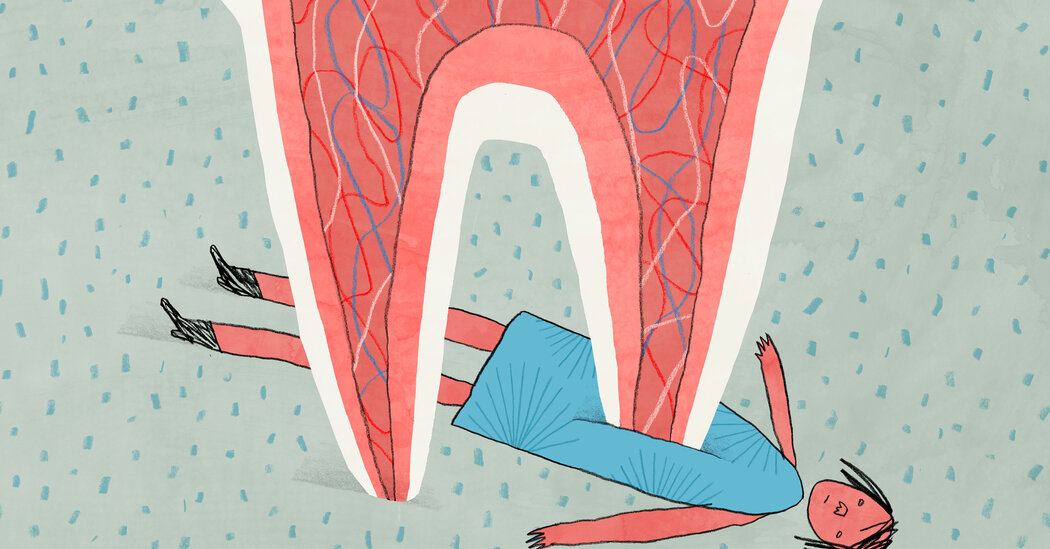
“Yes,” I said. I felt the tears welling up. “That’s it.”
My childhood was plagued with jitters and loss related to problems of the mouth: tooth decay, tooth grinding, erratic spacing, several missing molars that an early dentist joked made me either spectacularly evolved or prehistoric. But worst of all were the extra canals in my roots. Most teeth have one. Molars often have two. Three is unusual and four, as I have, is even more rare.
A root canal I had in my 20s turned complicated when a dentist failed to find multiple canals and, exasperated, quit halfway. This turned into bone loss around that tooth in my 30s and an excavation of the molar at 40. A titanium post eventually had to be implanted into my bone and a counterfeit tooth, a crown of porcelain, pushed in. It took multiple visits over several months, and was, after childbirth, the most painful thing I have experienced.
The office where my dentist works is in a busy center in Midtown Manhattan, 18 floors up. Lying in the ocean of anesthetizing dentist-office whirs, I didn’t know how I would ever get up from the chair. I couldn’t imagine the 45-minute subway ride home, the key turning the lock of my place, the emptiness that would meet me there.
Then my dentist, as though watching a film clip of my mind, took off his two layers of masks and said, “Listen to me.” His face was startlingly full of skin. “My wife left me and our sons when they were 2 and 4.” There was a long pause. “Then she died.”
I stared at him. I had met his now-teenage sons in the office. Their photo was above us on the wall.
“I thought I would die, too,” he said. “But I didn’t. I took a serotonin inhibitor for a year, and it got me through. I could get up in the morning. I could walk myself to work.”




